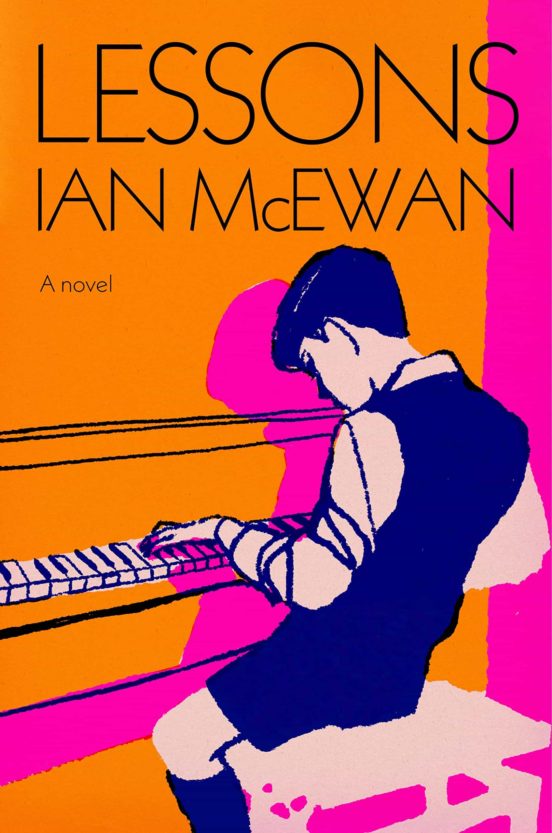

The man is Ian McEwan, or a fictionalised version thereof. And to say that Lessons tells the story of a man’s life is to raise more interesting questions, to wit: Which man? Which life? Told how?

(He’s a writer of setpieces, Good Bits which means also of dud-pieces, Boring Bits.) It’s also true of life. But this is oddly true of even quite short McEwan novels – Saturday, Amsterdam. Not again! Well, there are some chore-like patches here – dead spots, plodding interludes. In summary, Lessons sounds like a chore: a man’s life, told from childhood to senescence in roughly chronological order. Consciousness here defined as the feeling of what happens McEwan’s true subject, throughout his corpus. It constitutes a late argument in favour of the mainstream realist novel as a tool for thinking – the mainstream realist novel, which, at is best, both represents and interrogates consciousness itself.

It mixes modes – realism, political essay, social history, memoir. It gathers up its author’s dazzlements and remixes them – gives them shape and lustre. Lessons is Ian McEwan’s Napoleon Street novel. “What was wrong with Napoleon Street?” wonders Saul Bellow’s Moses Herzog, brooding on his earliest memories of Depression-era Montreal. These are also the accents you hear when a certain kind of novelist, no longer young, writes an autobiographical novel. That such things should have happened! To me! How astonishing! Listening to older people talk about the past, you hear the accents of disbelief. Why should memory dazzle us? Take us by surprise? But it does.


 0 kommentar(er)
0 kommentar(er)
